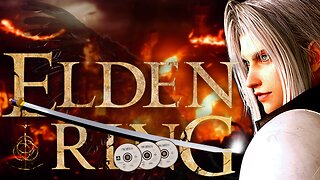Premium Only Content

Diesel Generator
Diesel generators are very useful machines that produce electricity by burning diesel fuel. These machines use a combination of an electric generator and a diesel engine to generate electricity. Diesel generators convert some of the chemical energy, contained by the diesel fuel, to mechanical energy through combustion. This mechanical energy then rotates a crank to produce electricity. Electric charges are induced in the wire by moving it through a magnetic field. In an electric generator application, two polarized magnets usually produce the magnetic field. A wire is then wound around the crankshaft of the diesel generator many times, which is placed between the magnets and in the magnetic field. When the diesel engine rotates the crankshaft, the wires are then moved throughout the magnetic field, which can induce electric charges in the circuit. A general rule of thumb is that a diesel generator will use 0.4 L of diesel per kWh produced. The diesel engine used is essentially an internal combustion engine. Unlike a gasoline engine, the diesel engine uses the heat of compression to ignite and burn the fuel that has been injected into the injection chamber. In general, diesel engines have the highest thermal efficiency out any internal combustion engine, which allow to achieve an approximate percentage of the Carnot efficiency. Diesel engines can operate off of many derivatives of crude oil. The fuels a diesel engine may use for combustion include natural gas, alcohols, gasoline, wood gas and diesel
-
 LIVE
LIVE
SpartakusLIVE
59 minutes agoRevisiting BLACKOUT w/ StoneMountain64 and ON1C || Duos on WZ w/ Panda later!
206 watching -
 LIVE
LIVE
Cripiechuccles
6 hours ago💚💙TERPY THURSDAY WITH CRIPIE💙💚
183 watching -
 LIVE
LIVE
FusedAegisTV
10 hours ago*ONE WINGED ANGEL* Sephiroth Build -- Elden Ring x FFVII PT. 3
264 watching -
 44:10
44:10
Kimberly Guilfoyle
3 hours agoBreaking News on Ceasefire, Plus Historic Action at EPA | Ep204
45.5K21 -
 11:37
11:37
The Gun Collective
4 hours agoWhy Does This Keep Happening?
222 -
 1:01:19
1:01:19
In The Litter Box w/ Jewels & Catturd
22 hours agoACTIVIST JUDGES | In the Litter Box w/ Jewels & Catturd – Ep. 761 – 3/13/2025
62K33 -
 1:10:50
1:10:50
Sean Unpaved
4 hours agoMarch Madness Ramp Up
33.2K1 -
 2:11:11
2:11:11
The Quartering
5 hours agoTrump To END Taxes For Most Americans, Government Shutdown, Tariffs, Michelle Obama Humiliated
94.3K43 -
 59:06
59:06
The Tom Renz Show
4 hours agoDOGE & Immigration vs. Epstein, Health & mRNA? How are we doing?
30.7K12 -
 9:09
9:09
RealitySurvival
3 hours agoHow to Remove Your Personal Data From The Deep Web For Good!
101